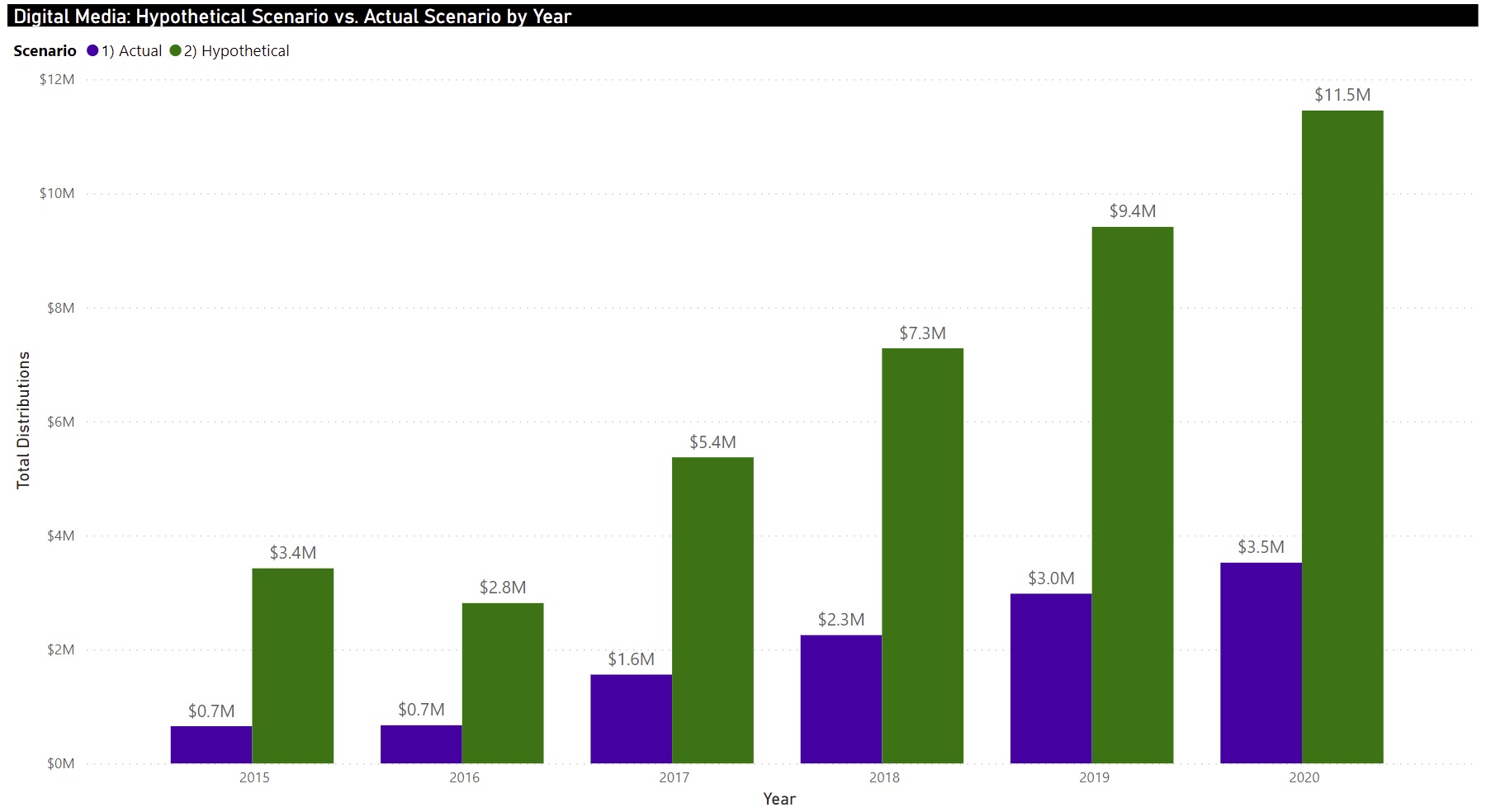Current broadcasting laws and regulations were designed for radio and television. While these rules have been effective, foreign digital platforms have zero obligations to support and promote Canadian creators, even to Canadian audiences. Reforming the Broadcasting Act is a necessary step to strengthening Canadian songwriters and composers’ place within Canada and supporting Canadian music in a digital world.
This article continues to explain SOCAN’s advocacy efforts to reform the Broadcasting Act. The previous articles in this series can be read here and here.
If the Broadcasting Act is reformed to extend to online broadcasting undertakings, what does that do for SOCAN songwriters and composers? Let’s take the best-case scenario that distributions from online broadcasters match the distributions from traditional broadcasters.
As you’ll recall from our previous two articles, for every dollar collected from traditional broadcasters, around 34 cents are distributed to SOCAN songwriter and composer members, whereas for every dollar collected from digital broadcasters, only around 10 cents remain in Canada.
Below is a chart setting out the actual distributions from online broadcasters to SOCAN songwriter and composer members, and the hypothetical distribution if online broadcasters matched the distribution percentage of traditional broadcasters.

From this chart we see that SOCAN songwriter and composer members received $11.8M in royalties from 2015 to 2020, but they would have received $39.8M in royalties (around 337% more) if digital broadcasting undertakings operated under the same regulatory regime as traditional broadcasting undertakings.
Granted, this hypothetical has its flaws. Traditional broadcasters generally “push” content out to consumers. In contrast, digital broadcasters are often interactive, don’t follow a fixed schedule, and allow consumers to “pull” content on-demand. With such different business models, it may not be possible or advisable to regulate digital services in the same way as traditional services.
But that doesn’t mean these services cannot be regulated. Without broadcasting regulations, Canadian songwriters and composers face an existential crisis when a key revenue stream – performing rights royalties – decreases up to 69% in the transition from traditional to digital sources.